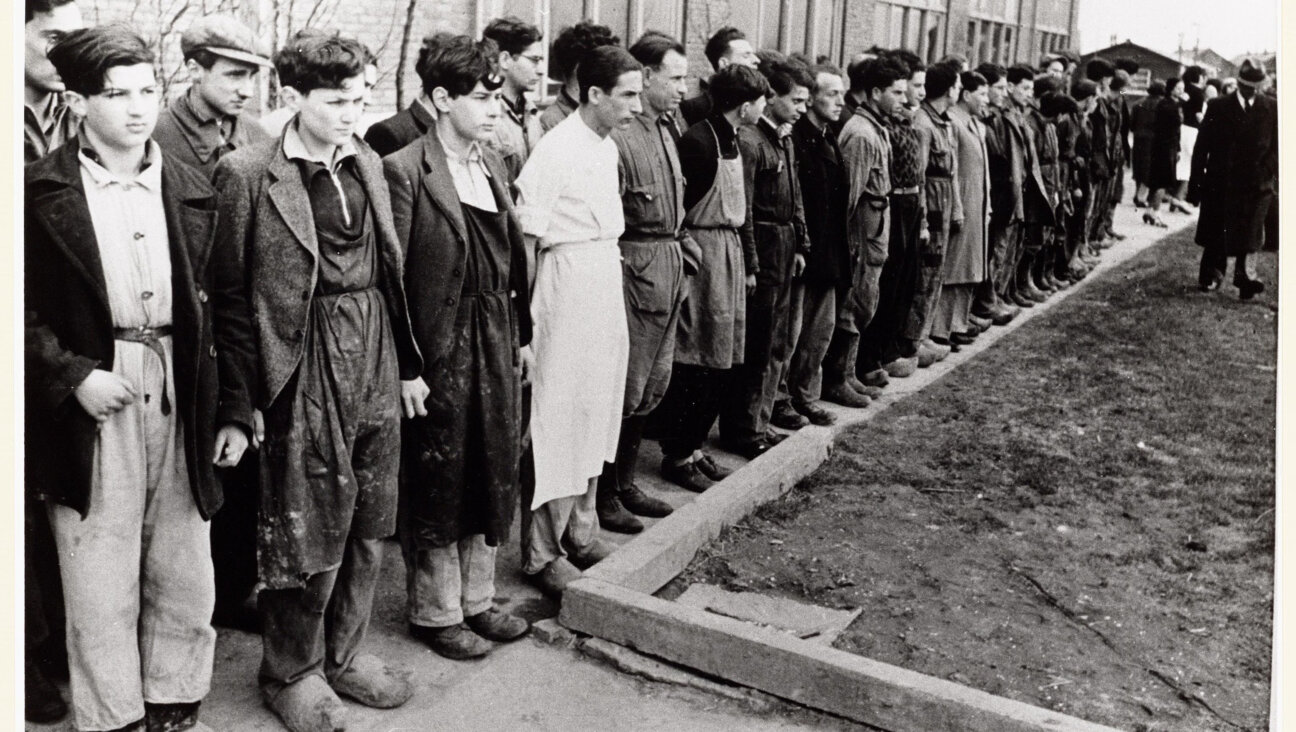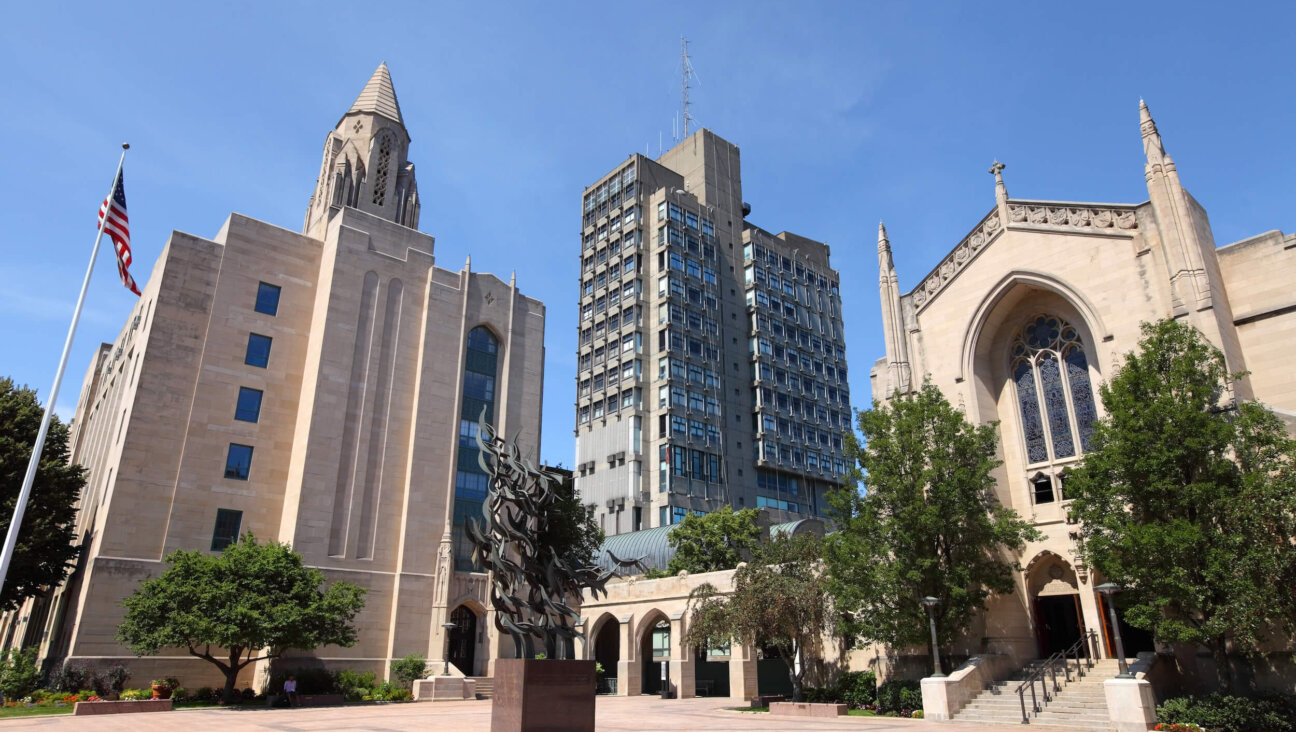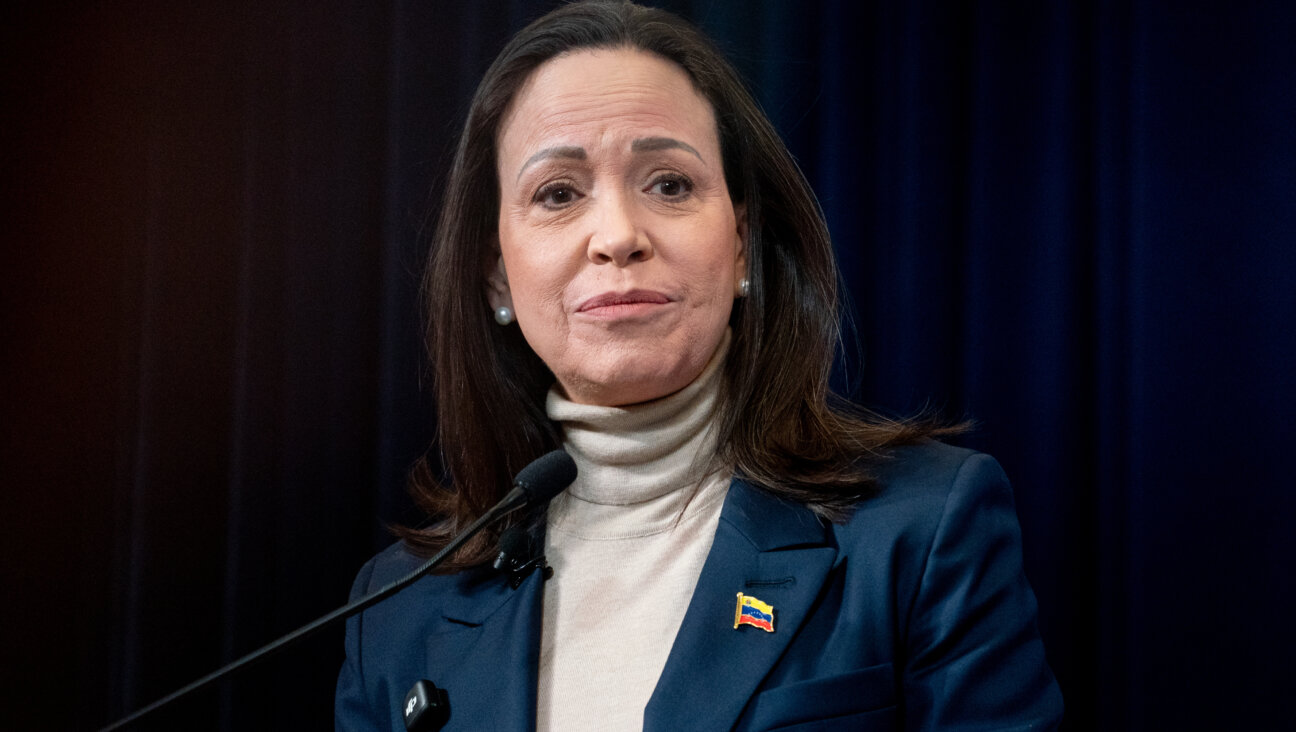Sharansky Set To Take Heat On Campus Speaking Tour
JERUSALEM — In an effort to reinforce students’ Jewish identities and bolster Israel’s standing on North American college campuses, Israeli Minister for Diaspora Affairs Natan Sharansky is embarking next week on a whirlwind campus speaking tour.
Believed to be the first time an Israeli minister has embarked on an extensive tour of North American universities, the six-day, 13-campus trip is part of a new effort by Sharansky to reach out to Jewish students feeling the heat from the anti-Israel campus movement.
“The responsibility of my portfolio is to deal with the problem of antisemitism,” Sharansky told the Forward. “Unfortunately, antisemitism — what some call ‘new antisemitism’ — has become one of the most important factors of the modern life in the democratic world, and campuses have turned into the main battlefields of antisemites.”
He said his talks will be open forums, with students and faculty of all political and religious stripes expected to attend — including many who will try to heckle and shout him down.
“I would say I am speaking to all those who are interested in listening to me,” said the former refusenik, who spent nine years in Soviet jails for fighting for the right of Jews to emigrate before being released in February 1986. “My main target is those Jews who are confused, who are frightened, who are ashamed. I want to show to them that we have all the reasons to be proud Jews, and proud of our record on human rights.”
Sharansky is a well-known figure throughout the Jewish world but, paradoxically, has always been more popular in the United States than in Israel, where his Yisrael B’Aliya party won only two seats in the January elections.
“The major difference is that in America he is known mostly for being a hero in the fight for Soviet Jewry, and in Israel he has become a politician like every other politician — and not a particularly successful one — and therefore there is really no reason he should have tremendous prestige here,” said Gadi Wolfsfeld, professor of political science and communications at the Hebrew University of Jerusalem.
Following the election, Yisrael B’Aliya merged with the Likud Party, a party that is tainted by scandal, with the prime minister being investigated for corruption and fellow party members implicated in a vote-bribing scheme.
Sharansky, however, appears unfazed by the allegations swirling around his party.
“I would prefer that our leading ministers and prime minister not be under investigation,” he said. “On the other hand, I have to say that I lived in a country where the leaders never could be under investigation, and I know it’s much better to be in a country where the leaders are under investigations and the process is allowed to proceed to the end in order that the truth will come out.
“In the last year there were many cases where leaders were investigated, and it was proved during the investigation that there was nothing in those accusations. There were also some cases that it was proved that people were really guilty, and they paid with their political career for this. I think that is the strength of democracy, and it’s very important that we continue to be like this.”
Jason Benkendorf, a senior at American University who is spending a semester at Hebrew University, said that it is Sharansky’s history of activism that will resonate on his campus tour.
“He’s a hero in our own time, or slightly before our time, and I think people will be interested to hear about that,” Benkendorf said. “People will be open to hear about his past; it will amaze people. Those of us on campus now are of the generation that really just caught the last bit of the Soviet Union, and don’t know too much of what went on. I think it will give him credibility to talk about what’s going on now.”
Benkendorf was part of a group of advisers who met with Sharansky to help him prepare for the trip.
Sharansky is aware that he will likely face challenges on his tour, from possible criticism of his opposition to the American-sponsored road map to Middle East peace to charges that he is part of a government that has no desire to make peace.
“If I believe that I am part of a government that is racist, totalitarian, corrupt, is warmongering, then no preparation will help me,” he said with a lowered voice. “Because I know that that’s a lie, that the truth is different. I am ready to speak the truth. Those who are afraid of freedom of speech, or think that freedom of speech means to jam Israeli speakers — there will be many like this, and they will try to do everything to jam me. I hope that in the academic fortresses of the leader of the free world there is still enough desire to keep the freedom of speech, in order to let me speak.”
On campus he will present his view, framed by his experience in the Soviet Union, that the need for democracy, regardless of who is leading the Palestinians, is paramount. Indeed, he said, he will tell his audiences that the resignation of the Palestinian prime minister, Mahmoud Abbas, also known as Abu Mazen, is indicative of the failure of the road map to stress democracy, contrasting it with President Bush’s June 24, 2002, speech calling for Palestinian democratization.
“The president was not speaking specifically about this or that leader; he was saying that the whole system has to be changed,” Sharansky said. “That is what I believe we are coming to understand, after all the illusions that one strong leader or another strong leader can bring the change. The problem is not the strength of one or another leader, and whether he is friendly or not friendly to Israel; the problem is how this leader is connected to his own people. Is he interested in his political survival, or to improve the conditions of his people? I believe that after the disappointments with Arafat and now probably with the regime of Abu Mazen, I believe that now the principles of the real connections between democracy and security can prevail.”
The campuses where Sharansky is scheduled to appear are York University, University of Toronto, Tufts University, Boston University, Harvard University, Massachusetts Institute of Technology, University of Maryland, Georgetown University, George Washington University, Princeton University, Rutgers University, New York University and Columbia University.
Sharansky’s trip is being coordinated with the Israel on Campus Coalition and Hillel: The Foundation for Jewish Campus Life, and it will be paid for by the Israeli government. The campus tour will be followed by a worldwide student summit being held here the last week of December, sponsored by Sharansky’s ministry, the Jewish Agency for Israel, the Israel on Campus Coalition, Hillel and the World Union of Jewish Students.















